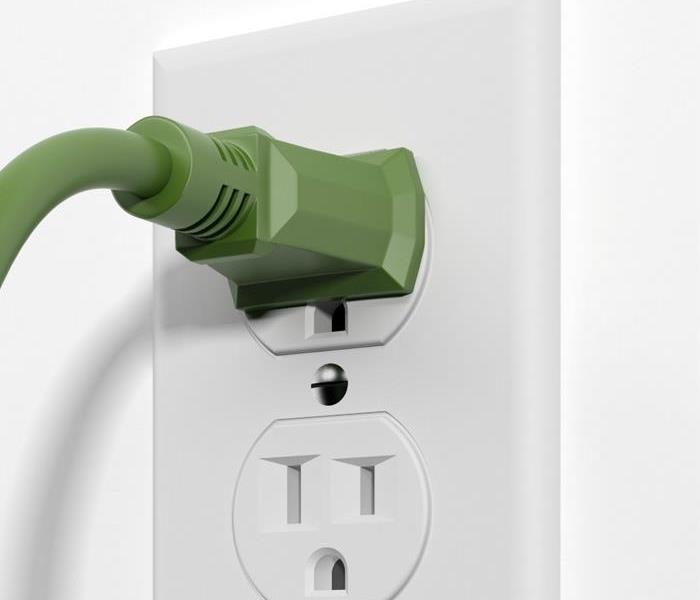Electrical Home Safety
5/13/2019 (Permalink)
Flipping a light switch. Plugging in a coffee maker. Charging a laptop computer. These are second nature for most of us. Electricity makes our lives easier. However, we need to be cautious and keep safety in mind.
Here are some safety tips courtesy of the National Fire Protection Association.
1. Have all electrical work done by a qualified electrician.
2. When you are buying or remodeling a home, have it inspected by a qualified private inspector or in accordance with local requirements.
3. Only use one heat producing appliances such as a coffee maker, toaster, space heater, etc. plugged into a receptacle outlet at a time.
4. Major appliances such as refrigerators, dryers, washers, stoves, air-conditioners, microwave ovens, etc. should be plugged directly into a wall receptacle outlet. Extension cords and plug strips should not be used.
5. Arc – fault circuit interrupters (AFCI’s). These shut off electricity when a dangerous condition occurs. Consider having them installed in your home.
6. Use ground – fault circuit interrupters (GFCIs). These reduce the risk of shock they shut off an electrical circuit when it becomes a shock hazard. They should be installed inside the home in bathrooms, kitchen, garages and basements. All outdoor receptacles should be GFCI protected.
7. Testing ACFIs and GFCIs: Once a month according to the manufacturers recommendations. You do not need a flame to start a fire. Fire is can start when heat builds up near things that burn. This can happen when a hot lightbulb is near things that burn. Things such as cloth or paper, or a cord that has been placed under a carpet.
8. Use ground – fault circuit interrupters to reduce the risk of shock. These items shut off an electrical circuit when it becomes a shock hazard. They should be installed inside the home and bathrooms, kitchen, garages and basements. All outdoor receptacles should be GFCI protected.
9. Check electrical cords to make sure they are not running across doorways or under carpets. Extension cords are intended for temporary use. Have a qualified electrician add more receptacle outlets so you don’t have to use extension cords.
10. Use a lightbulb with the right number of watts. There should be a sticker that indicates the right number of watts.
IMPORTANT REMINDERS:
Call a qualified electrician or your landlord if you have:
Frequent problems with blowing fuses or tripping circuit breakers.
A tingling feeling when you touch an electrical appliance.
Discolored or warm wall outlets.
A burning or rubbery smell coming from an appliance.
Flickering or dimming lights.
Sparks from an outlet.





 24/7 Emergency Service
24/7 Emergency Service
